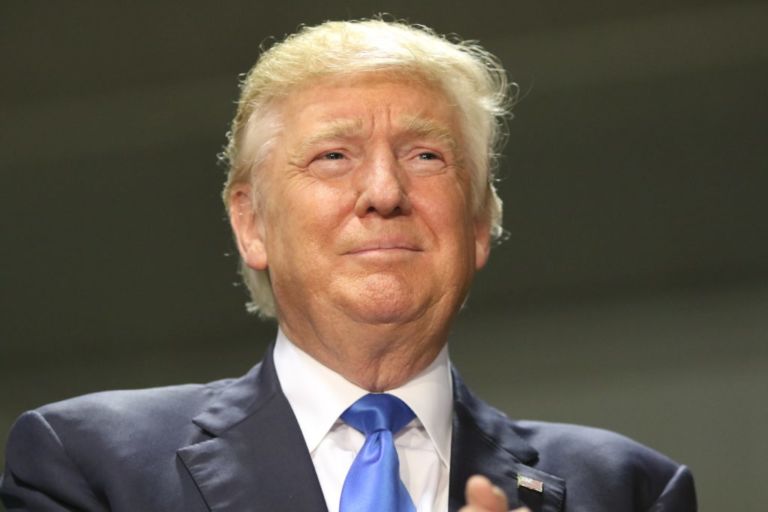Two democratically aligned advocacy organizations recently sent a letter to the election boards in ten states, including North Carolina. In the letter, Free Speech For People and Mi Familia Vota Education Fund argue that Donald Trump is disqualified from serving a second presidential term under Section Three of the 14th Amendment, and they urge the state boards to exclude him from the ballot on that basis.
When I was asked for my thoughts on the matter, here’s what I said:
If the NC State Board of Elections, or any other state board, attempted to disqualify Trump under Sec. 3 of the 14thAmendment, he would certainly mount a legal challenge, and he would probably win for several reasons.
The relevant part of Sec. 3 forbids anyone from holding federal office “who, having previously taken an oath … as an officer of the United States … to support the Constitution of the United States, shall have engaged in insurrection or rebellion against the same.” To overcome a legal challenge, the state board would have to show that Trump meets all those conditions. That, however, would be hard to do.
In the first place, it is not clear that Trump took his oath in 2017 as “an officer of the United States.” In 2021, in the New York University Journal of Law and Liberty, Josh Blackman & Seth Barrett Tillman made a convincing argument that the President is not an officer of the United States within the meaning of the Amendment.
In the second place, it is not clear that the events of Jan. 6, 2021 constituted an “insurrection or rebellion.” The fact that the letter makes frequent comparisons to the disqualification of Confederate officers and soldiers is both appropriate and telling. The 14th Amendment was written and ratified in the immediate aftermath of the war, and the reference to “insurrection or rebellion” in Sec. 3 should be read with that context in mind. However, to compare what happened on Jan. 6, 2021, with secession and civil war is laughable.
Finally, even if one could characterize some of the events of Jan. 6 as an “insurrection,” it is not clear that Trump was “engaged” in those events. The Democrats had a chance to show that he was during the impeachment proceedings and failed miserably.
While my view of the matter hasn’t changed, I feel obliged to report that two highly respected legal scholars disagree. In a forthcoming law review article called “The Sweep and Force of Section Three,” Will Baude and Michael Paulsen argue that the President is an officer of the United States, that Jan. 6 was an insurrection, and that, because he engaged in that insurrection, Donald Trump is disqualified from holding federal office.
Using historical sources, Baude and Paulsen devote much of their 126-page article to analyzing the original public meaning of “officer of the United States” and of “insurrection or rebellion,” and they use that analysis to support their contention that both phrases should be interpreted in a way that “sweeps” very broadly. As they themselves acknowledge, however, their argument ultimately hinges, not on the meaning of those phrases, but on the events of Jan. 6 and, even more, on Trump’s role in those events. In reaching their own conclusions about the events and Trump’s role therein, Baude and Paulsen place a great deal of weight on the outcome of the second Trump impeachment and on the findings of House January 6th Committee. Since I don’t regard either of those proceedings as fair or objective, I remain skeptical.
My principal quarrel with Baude and Paulsen, however, isn’t over their interpretation of the text of Section 3 or their account of what happened on Jan. 6. Reasonable minds can and clearly do differ regarding these things. What I object to is their insistence that—despite the that difference of minds—state election boards and other state officers should go ahead and disqualify Trump from the ballot. In my view, that is profoundly bad advice.
Michael McConnell, a distinguished professor at Stanford Law School, explains why in a recent critique of the Baude and Paulsen article:
We must not forget that we are talking about empowering partisan politicians … to disqualify their political opponents from the ballot, depriving voters of the ability to elect candidates of their choice. If abused, this is profoundly anti-democratic. … In the absence of actual engagement in actual insurrection, judged as such by competent authorities, we should allow the American people to vote for the candidates of their choice.
Many things happened in the course of the 2020 election to shake Americans’ confidence in our electoral system. In North Carolina those things included multiple lawsuits attempting to overturn our duly enacted election laws, including one that ended with what appears to have been a collusive settlement in which the plaintiffs (who wanted to change the election law), the State Board of Elections (which, as the defendent, agreed to change the law), the Attorney General (who was supposed to defend the law), and the judge (who presided over the settlement) were all affiliated with or controlled by the Democratic Party. The Democrats still control the State Board of Elections. If they try to keep Trump off the ballot it will be seen as yet another partisan abuse of power, and it will further erode the public’s confidence in the integrity of our elections.
Unless and until a court of competent jurisdiction finds that Trump engaged in insurrection or rebellion, it would be a serious mistake for the NC Board of Elections, or any state elections board to disqualify Donald Trump under Section 3.


